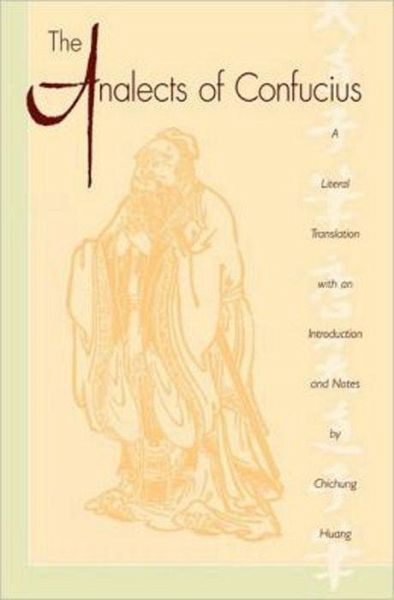
The Analects of Confucius (Lun Yu)
Versandkostenfrei!
Versandfertig in 1-2 Wochen
24,99 €
inkl. MwSt.

PAYBACK Punkte
12 °P sammeln!
In the long river of human history, if one person can represent the civilization of a whole nation, it is perhaps Master Kong, better known as Confucius in the West. If there is one single book that can be upheld as the common code of a whole people, it is perhaps Lun Yu, or The Analects. Surely, few individuals in history have shaped their country's civilization more profoundly than Master Kong. The great Han historiographer, Si-ma Qian, writing 2,100 years ago said, "He may be called the wisest indeed!" And, as recently as 1988, at a final session of the first international conference of Nob...
In the long river of human history, if one person can represent the civilization of a whole nation, it is perhaps Master Kong, better known as Confucius in the West. If there is one single book that can be upheld as the common code of a whole people, it is perhaps Lun Yu, or The Analects. Surely, few individuals in history have shaped their country's civilization more profoundly than Master Kong. The great Han historiographer, Si-ma Qian, writing 2,100 years ago said, "He may be called the wisest indeed!" And, as recently as 1988, at a final session of the first international conference of Nobel prize-winners in Paris, the seventy-five participants, fifty-two of whom where scientists, concluded: "If mankind is to survive, it must go back twenty- five centuries in time to tap the wisdom of Confucius." This a man whose influence in world history is truly incomparable. His sayings (and those of his disciples) form the basis of a distinct social, ethical, and intellectual system. They have retained their freshness and vigor for two and a half millennia, and are still admired in today's China. Compiled by pupils of Confucius's disciples half a century after the Master's death, The Analects of Confucius laid the foundation of his philosophy of humanity--a philosophy aimed at "cultivating the individual's moral conduct, achieving family harmony, bringing good order to the state and peace to the empire. Containing 501 very succinct chapters (the longest do not exceed fifteen lines and the shortest are less than one) and organized into twenty books, the collection comprises mostly dialogues between the Master and his disciples and contemporaries. The ethical tenets Confucius putforth not only became the norm of conduct for the officialdom and intelligentsia, but also profoundly impacted the behavior of the common people. The great sage's unique integration of humanity and righteousness (love and reason) struck a powerful chord in all who attem




